Oranges our our ingredient of the season. We have big plans for a winter of zesty recipes and sweet crafts.
Today we’re sharing a super simple craft that you often see around the holidays : the orange and clove pomander.
Pomanders are balls made of some sort of scented or perfumed material. They are considered an original form of aromatherapy and have a long history dating back to the Middle Ages!
The orange and clove pomander is considered a modern version, and if properly dried, you can use these sweet and spicy smelling balls year after year as holiday decorations or in place of sachets in your dresser drawers.
This is a very easy and kid-friendly craft! To make a bare-bones pomander all you need are oranges and cloves (buying your cloves in bulk is the way to go here). If you want to get fancy, you can add ribbon, either tied around your orange and incorporated into the design or looped through your orange for hanging.
With your supplies ready, start making a design on your orange. I did all of these over the course of a couple of days ~ whenever A. Max was busy playing and I had a minute to myself. So rather than fuss over a specific design, I just played with the cloves and did a few free-form patterns.
There were curved lines.
That looked like swirls from the top.
One had a vine with flowers.
And there were polka dots!
The one issue you’re likely to have, especially if you’re in a more humid climate, is some mold growth. I’m hoping that the dry CO climate is going to help us out here! But to be on the safe side, once I was done with the designs, I put these in a cool, dark closet for about a week to dry out more. As they dry, you’ll notice that the cloves are sticking out a touch, so you can go around a poke them back in.
A traditional way to avoid mold growth is to sprinkle your finished oranges in orris root powder. This will help to dry out the orange and will add a violet scent to your pomander. In an effort to keep this project simple and low cost, I’m taking my chances and skipping the orris root!
Putting them all together, it’s a nice little display of pattern that smells unbelievable! Alex loves to walk over to them and take a big whiff, which is unbelievably cute!

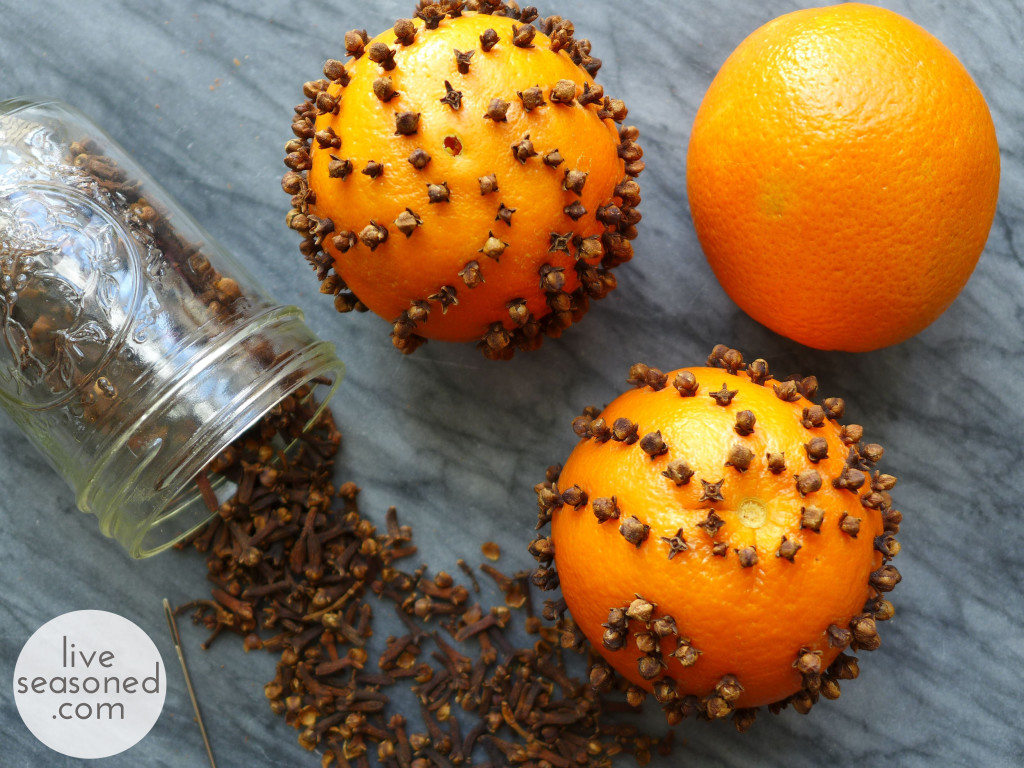
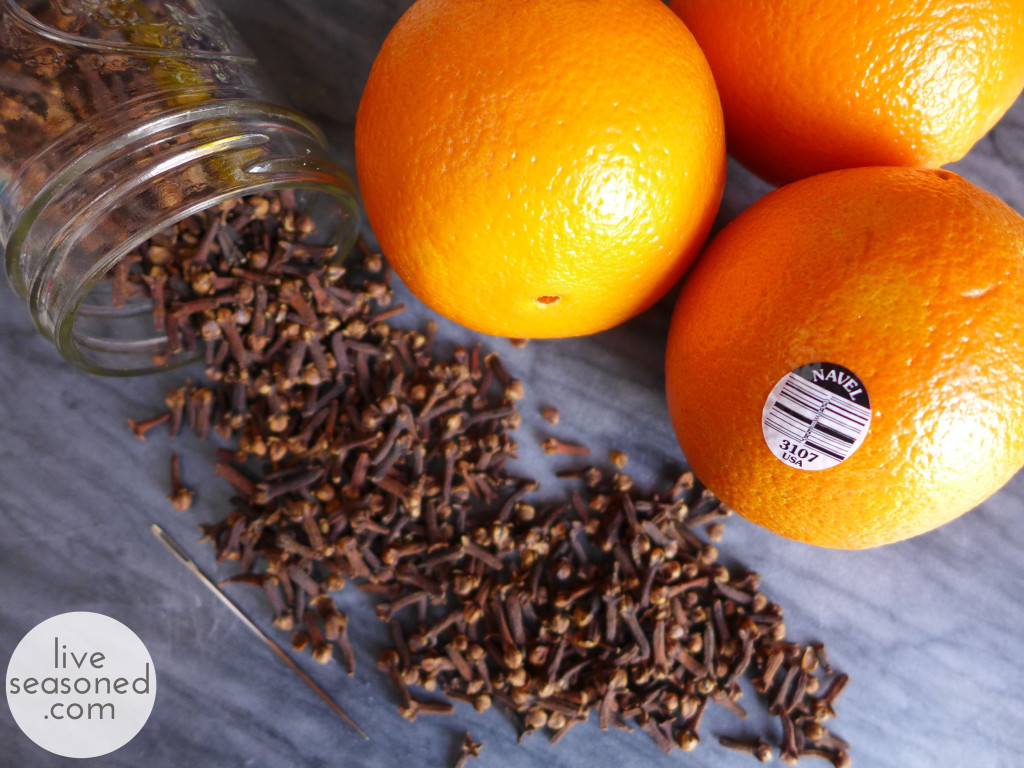
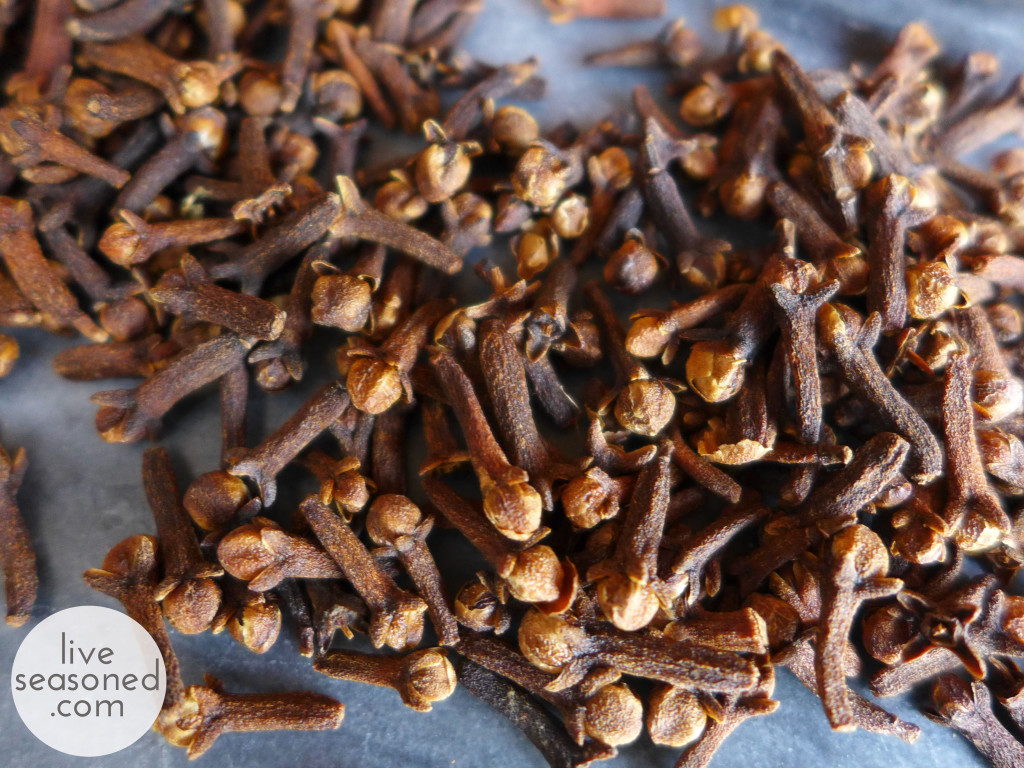
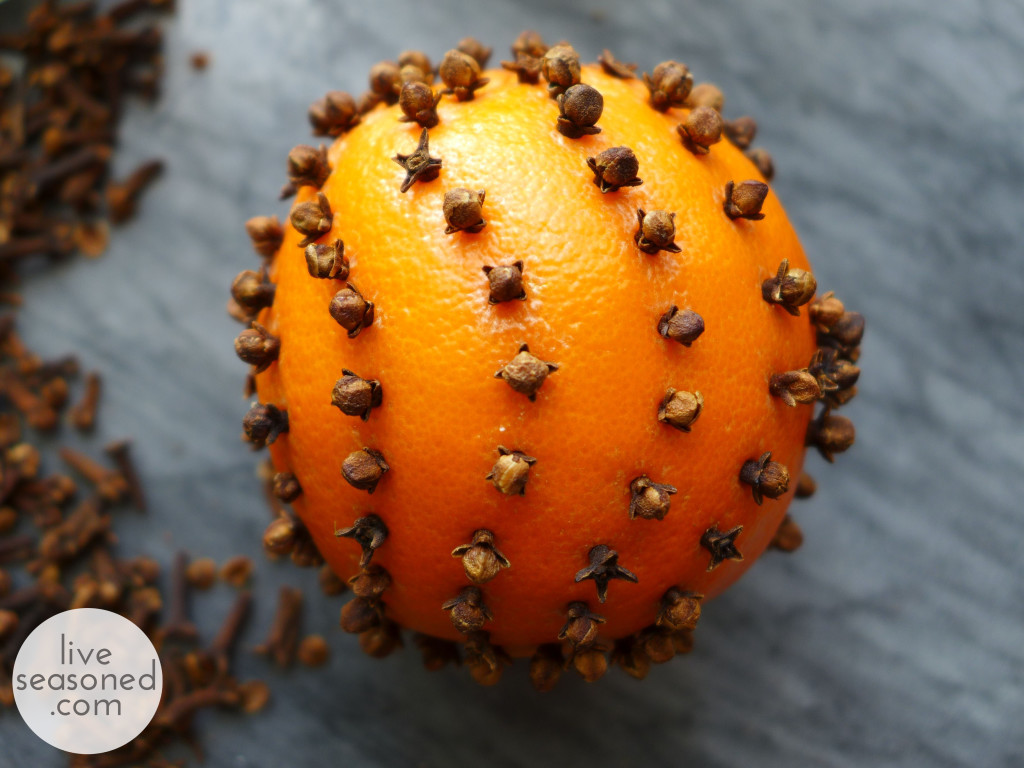
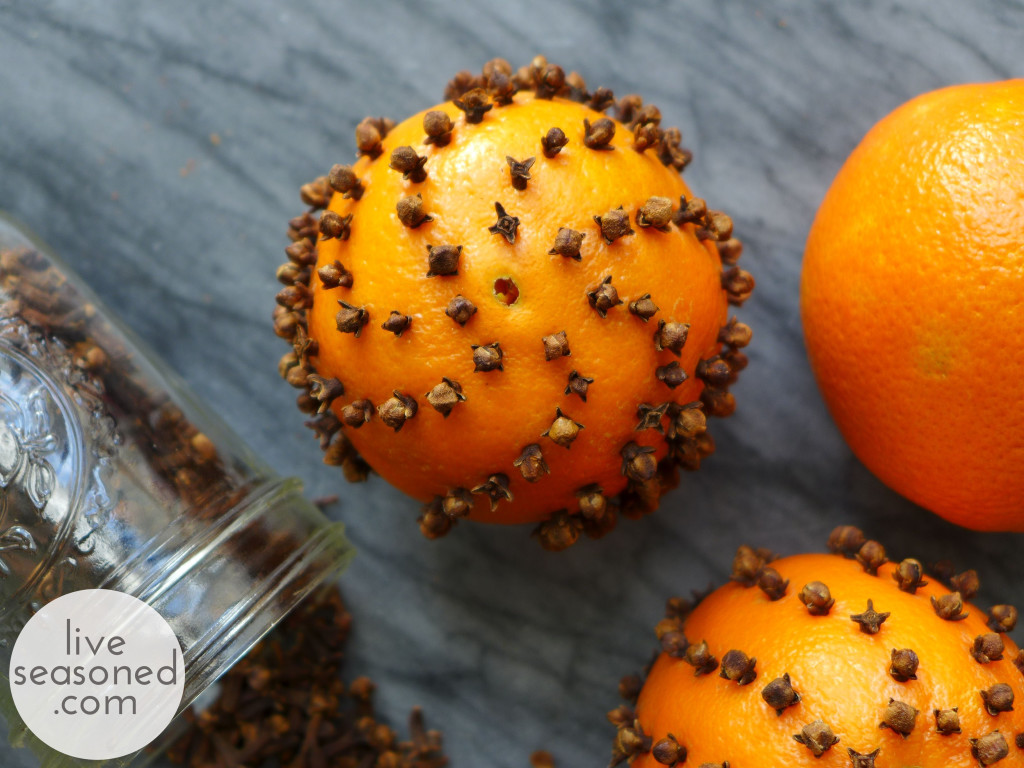
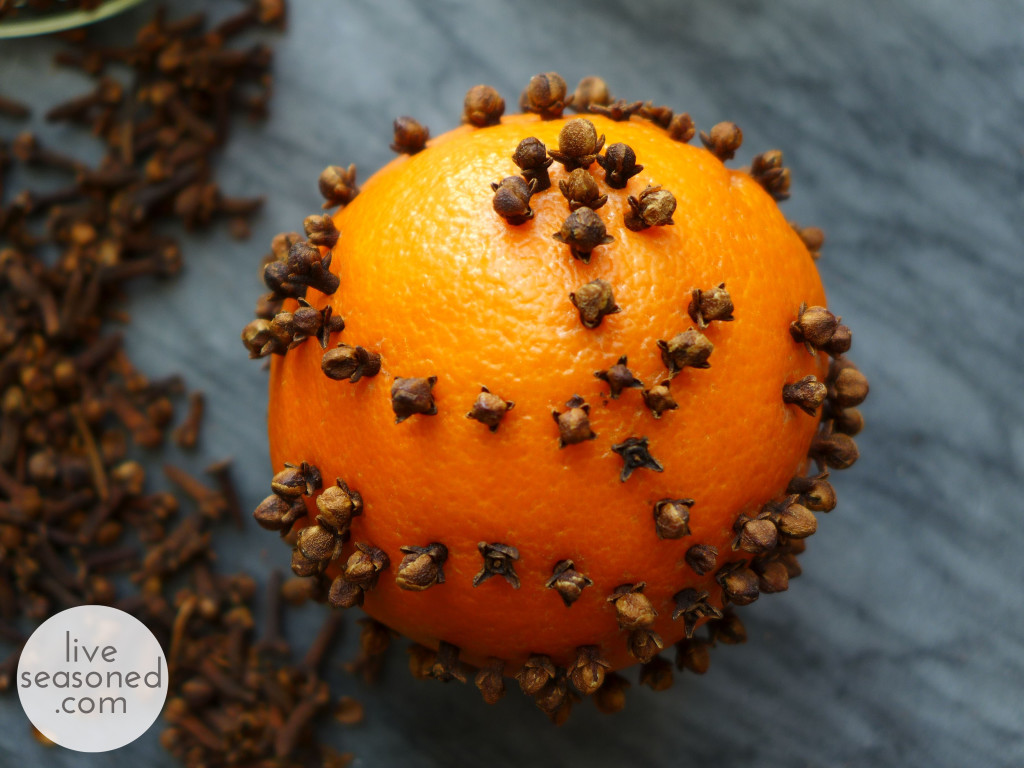
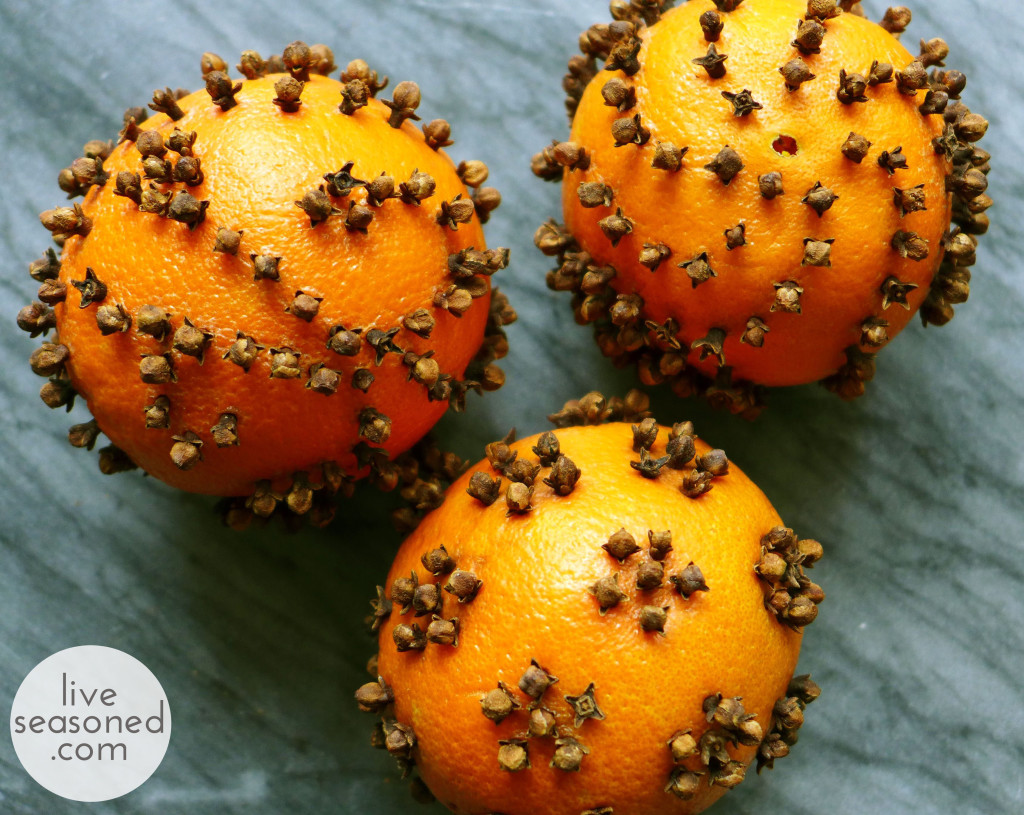
Pingback: Bringing the Autumn Indoors
How can I avoid the clove heads breaking when I push them into the fruit? Thank you.
Hi Chanie, We found that some cloves were weak and would just break, no matter how careful we were being. That said, when we used a skewer to pierce the holes before pushing in the cloves, then we had a lot less breakage. Hope that helps!